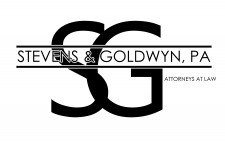Stevens & Goldwyn, P.A. Advises Associations on How to Protect From Community Association Violations

Fort Lauderdale, FL, January 5, 2018 (Newswire.com) - According to their most recent article, Stevens & Goldwyn help associations devise ways to maintain the residential rules as established in their association’s Declaration and Covenants, Conditions & Restrictions (CC&R). The article outlines the most common violations:
“Associations are small governments that are responsible for keeping their communities and building safe, while always trying to maintain and increase the value of the homes in the community," remarked John Stevens, a homeowners' association lawyer.
The association’s Declaration and/or Covenants, Conditions & Restrictions (CC&R) are put in place for the benefit of the majority of the residents and should be respected as such. Below are some of the most frequent violations that take place in Community Associations.
1. Setting out garbage cans too early and not bringing them in on time.
Also, storing the garbage cans or recycle bins in plain view from the front of the property is usually not permitted. We all know the neighbor who comes home from work and walks past the empty garbage cans where they sit for the next 2 days.
2. Boat and recreational vehicles that are parked in front of the driveway.
3. Proper landscape maintenance is required. You can usually tell immediately when a homeowner is not maintaining their landscaping.
4. Improper vehicles being parked or stored in a home, such as abandoned and unregistered vehicles. Also, a commercial vehicle being parked in a residential community is typically not allowed as well.
5. Illegal accumulation of abandoned property and debris on the property is a clear violation. We have all seen the neighbor that never puts anything away or stores it on the side of the house for a year and it just kind of grows and accumulates in size over time.
6. Homeowners who plan on making improvements to their homes or properties are typically required to file an Architectural Modification Form for review by the associations’ Board of Directors or the responsible committee for approval.
7. Signage is usually prohibited. This happens in every neighborhood, but usually, regardless of whether it is a sign on a window or a small lawn sign, they are prohibited or strictly regulated.
"These type of Rules and Regulations are important for successful Community Association living. These types of rules are what allow a community to maintain its aesthetics and by doing so, helps to improve the property values. A well-planned enforcement policy will ensure that all homeowners comply with the association's restrictions. In order for your enforcement policy to be successful, it must be followed consistently," stated Brian S. Goldwyn, a homeowners' association attorney.
Stevens & Goldwyn concentrate their efforts in Homeowner law for condo and housing associations across South Florida. Association directors, members, and managers who believe they may have evidence of criminal violations under this new law should consult closely with highly experienced association legal counsel in order to determine their next steps. Stevens & Goldwyn are expert hoa attorney's that can solve any dispute.
Source: Stevens & Goldwyn, P.A.